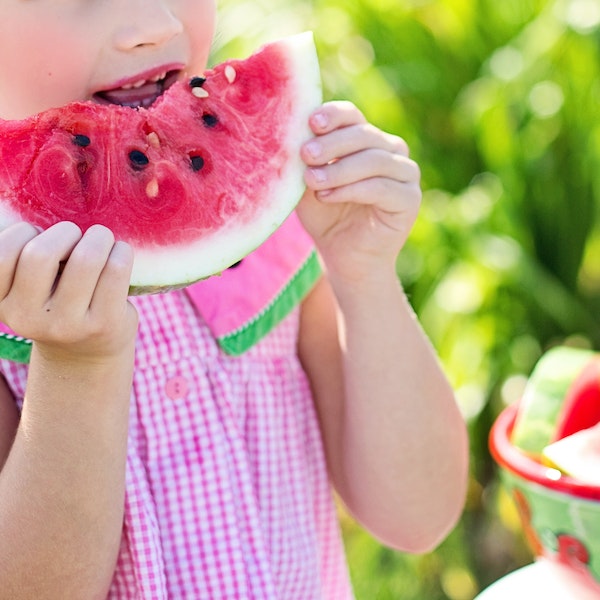Parenting can be challenging.
Every parent dreams of seeing their children grow up to be happy and healthy individuals.
However, to start the process towards a happy lifestyle for your child should begin from a very early stage.
Research shows that a child’s early years play a crucial role in shaping their overall development, but what does it take to raise kids who are not only physically healthy but also emotionally resilient and content?
Parenting happy and healthy kids requires attention to the physical, emotional, and social aspects of their development.
Here are some essential tips to help you raise happy and healthy kids.

Get happy yourself
Children mostly adapt to their parent’s emotions and behaviors, and they often believe that this is exactly what they deserve.
Some people think that it is selfish to look for your happiness, but the truth is your happiness is crucial for your kids to be happy.
Now, when you know that your happiness impacts your child’s well-being, you should start taking care of yourself and spreading positive vibes to your kids.
Encourage a balanced diet
Your child’s health always comes first, as it is essential for both physical and mental development.
Provide your kids with a balanced diet rich in fruits and vegetables, and limit sugary snacks and beverages to prevent childhood obesity and related health issues.
The Centers for Disease Control and Prevention reports that childhood obesity affects approximately 19% of children and adolescents in the United States.
Prioritize physical activity
You should encourage your kids to be involved in outdoor activities such as playing football, going to a beach, or joining a Zumba class. This will help them boost their moods and keep them active and healthy.

Promote emotional well-being
Create an environment where your child feels comfortable expressing their emotions.
Sometimes, children cannot express their feelings, leading to stress and depression as they grow older, so listen to what they want and what they are going through.
According to the World Health Organization, over 10% of children and adolescents worldwide are struggling with mental health issues.
Ensure quality sleep
Sufficient sleep ensures your child’s growth and well-being; therefore, establish a consistent bedtime routine and create a calming sleep environment.
According to experts, preschoolers need 10-13 hours of sleep per night, while school-aged children require 9-12 hours.
Instill strong relationships and values
Healthy parenting involves maintaining healthy relationships is fundamental to your child’s social development.
It will take little time to teach your kids to build positive connections with family members, friends, and peers.

Encourage exploration and creativity
Allow your child to explore various interests and hobbies, as unstructured playtime allows kids to explore their imagination, develop problem-solving skills, and build confidence.
Involve your kids in creative activities like drawing, painting, or playing a musical instrument fosters self-expression and boosts self-esteem.
Limit screen time
Excessive screen time can have worse impacts on your child’s well-being.
It is essential to set reasonable limits on TV, computer, and device usage. You should Encourage them to spend more time engaging in physical activities and face-to-face interactions.

Create a supportive environment
Providing a safe and supportive home environment where your child feels loved and accepted gives them the power of independence and responsibility.
A study published in the journal reveals that happy children tend to experience greater success in various aspects of life, including relationships and academic achievements.
Develop gratitude in your child
Encourage your child to focus on the positive aspects of life. Incorporate gratitude exercises into your daily routine, such as sharing one thing you’re grateful for during family meals.
Raising happy and healthy kids requires a combination of mindful choices, consistent effort, and unconditional love.
Takeaway
Raising happy and healthy kids requires a holistic approach that addresses their physical, emotional, and social needs.
If you prioritize proper nutrition, physical activity, emotional well-being, and positive relationships with your child, you can highly contribute to your child’s well-being.
Parenting can be challenging, but you need to understand that your child is unique, so tailor your approach to their individual needs and interests. Your guidance and support will shape their journey toward a fulfilling life.
FAQs
How can I help my child handle stress and challenges?
Teach them problem-solving skills and stress management techniques. Have open conversations about their feelings and offer guidance without being overly directive.
Is it okay for my child to experience failure?
Absolutely. Failure is a natural part of life and provides valuable learning opportunities. Offer support and encouragement while allowing them to navigate challenges on their own.
What role does outdoor play have in my child’s well-being?
Outdoor play promotes physical activity, creativity, and social interaction. It also helps reduce stress and improves mood.
How can I foster resilience in my child?
Let your kids face challenges and setbacks, providing support when needed. Teach them that setbacks are opportunities for growth and learning.


